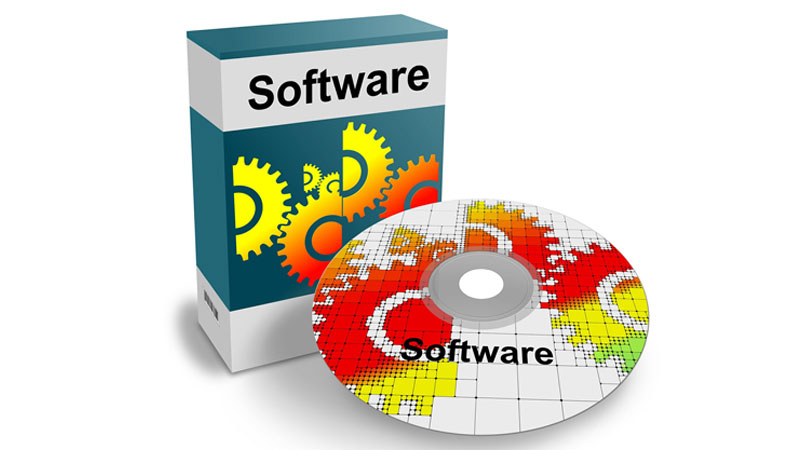This article is by contributor James Trowell.
As any professional freelancer will tell you, ways to cut back on freelancing costs matters. Working as a freelancer is worlds apart from the security of a corporate office job – as well as having unique rewards and benefits, it also has its own set of pitfalls to watch out for.

Whether you’re planning on earning supplementary income alongside your main employment or working for yourself as your primary source of income, proper planning and preparation are vital to maximize your earnings and keep unnecessary expenditure to a minimum.
We’ve spoken to thousands of freelancers over the years, so we’re intimately familiar with what you need to think about when working for yourself – here are our top tips covering the most common pitfalls and oversights that cost freelancers money.
Don’t Overspend On Start-Up Costs
If you’re new to freelancing, it can be tempting to immediately splash out on brand-new versions of everything you need to stock an office – after all, you’ll be working from home, so you’ll need to make sure the environment is appropriate, right?
Well, while that’s true, it’s also smart to avoid unnecessary expenditure at the start of your freelancing career.
Spending thousands of pounds on furniture and IT equipment should generally be reserved for when you’re making steady money – when beginning to work from home, you should always think “Do I already have what I need?” and go from there. An old laptop and a dining table as a desk might not be pretty, but they’ll get you started.
Why Buy New?
If you are missing crucial elements of a home office, or you simply can’t resist the urge to upgrade, it’s well worth considering buying second-hand furniture.
There are plenty of companies and auction houses specializing in used office furniture and equipment – their stock comes from an endless stream of stock from companies who are remodeling, upgrading, downsizing or closing their doors, and much of it is in pristine condition. Often, you’ll be able to pick up like-new desks, cabinets and chairs at a fraction of the cost – what’s not to like?
Keep On Top Of Your Finances

There’s a ton to think about when you start out as a freelancer, and the majority of your attention will naturally go towards your work. However, make sure to set time aside to get your finances in order – it’ll save you money, and also save you time in the long run.
In particular, keep track of filing and tax deadlines – fees for late submissions are an entirely avoidable expense, but easy to incur if you’re not organized. Similarly, make sure that credit card balances are paid off in full at the end of the month, loans are repaid on schedule and any overdrafts are cleared – interest and fees can add up quickly.
Keeping a handle on your finances is definitely somewhere that “work smarter, not harder” applies – taking the time to set up direct debits/standing orders, setting reminders and alarms for important dates and logging your income and expenses weekly in your accounting software (or spreadsheet!) keeps effort to a minimum and prevents tasks from piling up.
Keep Track Of ALL Expenses
Speaking of expenses, make sure you’re recording all expenditure incurred for the purpose of your freelance work – expenses reduce your tax bill, so you’re directly costing yourself money by not claiming them.
Fortunately, there are tools available to help with this – we suggest using a phone app (there are many available) to record expenses on-the-go. Storing photos of your receipts and tracking expenditure at the time it’s incurred means you won’t have to sort through stacks of old receipts and invoices to ensure you’re capturing everything.
Invest In Yourself

The most important investment you can make as a freelancer is enhancing your own skills. It can be difficult to continue developing while working at home – one of the upsides of a traditional corporate job is being surrounded by people who can provide feedback, encourage different ways of thinking and teach you new skills.
Make sure you’re not falling behind by devoting time to learning – there are tons of free and paid resources online for every conceivable subject, as well as conferences, industry events and informal meetups year-round.
By investing in yourself and keeping your skills relevant and up-to-date, you’ll develop good habits and ensure that you’ll always be able to find suitable work.
Negotiate, Haggle And Barter
If you’re moving into freelance work for the first time, it’s quite likely you’ve never negotiated prices for the supplies and services you use day-to-day. When you’re working for yourself, that needs to change!
Prices aren’t always firm, and suppliers are often willing to make a deal that works for both yourself and them – especially if you’re placing regular orders. It can be particularly helpful to obtain like-for-like quotes from different suppliers and ask them to match or beat a competitor – if one refuses, you have another offer to fall back on.
Amongst freelancers, it’s also not uncommon to barter services for services – a freelance web developer might build a webpage for a self-employed marketer in exchange for advertising space, for example. This can be a great way of getting something you need, or subcontracting work, without needing available funds.
Make Use Of Open-Source Software And Free Trials

What’s even better than negotiating a lower price? Not paying anything at all! Open-source software exists for almost any application – from photo manipulation and video editing to web design and CAD, as well as free alternatives to office software and pdf tools.
Often, these will meet your needs just as well as an expensive software suite – before splashing out, consider if you need to spend the money.
If you do need professional software, most companies will offer free trials – it’s well worth making use of these before making a purchase, as paying for expensive software that you find difficult or unintuitive to use can be a costly mistake.
Get Rid Of Your Landline

Be honest – when was the last time you used a fixed line phone, outside of an office? Given that we all walk around with a mobile phone in our pockets 24/7, a landline is the number-one unnecessary cost in a home office. From business mobile phone contracts to video conferencing, it’s likely your freelance needs are served cheaper without a landline.
If you’re wedded to the idea of having a landline number, consider a ‘virtual landline’ – these are landline numbers which divert straight to your mobile. Your clients will never know!
Go Paperless
The landline isn’t the only habit picked from the corporate office environment that you might not need for a home office. Before buying a printer, for example, consider whether you’ll actually use it – you can switch to electronic invoices, email communication and documents saved on your computer and never need to use a sheet of paper. Not only is it better for your wallet, it’s also better for the environment!

Make Sure You’re Energy-Efficient
Energy efficiency is important when working from home – when the house is in use 24/7, you’ll likely see a spike in your electricity and gas bills.
Mitigate these by investing in energy-efficient bulbs and energy-smart appliances where possible, and investigate state-sponsored rebate and subsidy schemes – these can cover anything from a boiler replacement and heating controls to double glazing and insulation.
A little expenditure up front can save money further down the line – and if you’re living and working in the same place, it makes sense to make an investment!
Author Bio: James Trowell, Head of Tax and Accounting for Dolan Accountancy. James specializes in providing expert tax advice to contractors and freelancers.














